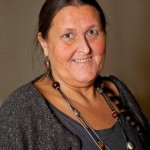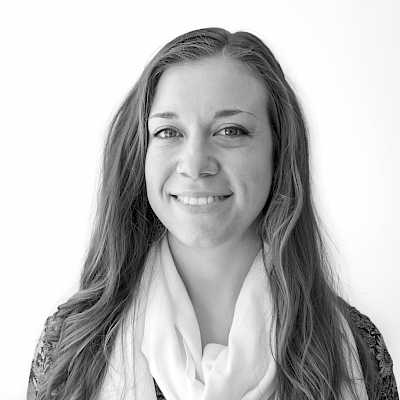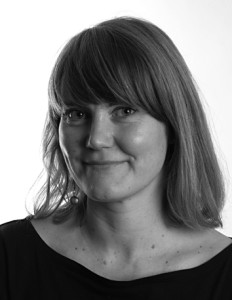Exploring Diversity SEMINAR SERIES
WORKSHOP
“The Crystallisation of National Identities in Contemporary Europe”
Open IMER/UiB Workshop
This workshop will deal with a trend in many European states which may be referred to with labels such as the ‘crystallisation’ of national identities or neo-nationalism.
The workshop will examine questions like: is there a particular encompassment of globalisation by the European nation-states, generating neo-nationalism or the crystallisation of national identities? Are neo-nationalism and crystallisation inherent results emanating out of emerging European state-forms influenced by globalisation? Is the historical European national diversity generating something specific European which manifests itself in these contemporary phenomena? Or are there, at the level of generation, a restructuration of political universes and modes of citizenship where neo-nationalism and/or crystallisation of national identities are concomitants? If so, which are the key structurating forces? What (new) (world) order would such neo-nationalism and/or crystallisation imply? To whom would it give more power and legitimacy?
Workshop programme :
Wednesday September 17. :
13.15 – 16.30
1. Yngve Lithman: Welcome and Introduction
2. Bruce Kapferer: Globalization and the Nation State.
3. Mette Andersson: The social imaginary of first generation Europeans.
Thursday September 18. :
09.15 – 12.15
1. Andre Gingrich: “National Identity Inc.”: Uncertainties, politics of emotions, and the fading of European visions.
2. Sigalit Ben-Zion: The problem of the crystallization of national identity in Europe in the post-multiculturalism era.
3. Yngve Lithman: Nationalism, Chrystallization: observations from Scandinavia.
13.15 -17.00
1. Christian Joppke: Changes in the conceptual of citizenship in contemporary Europe: Liberalism and the nation.
2. Elisabeth Ivarsflaten: The anti-racism norm in Western European immigration politics: Why we need to consider it and how to measure it.
3.Hakan Sicakkan: Tracing the de-crystallization of European national identities: humanitarian sovereignty sharing, alternative public spaces and invented belongings.
WORKSHOP
Migration in Nordic societies: Recent perspectives
The workshop is organised as a collaboration between IMER Bergen and the Department of Sociology, UiB. It is open for all interested researchers and students.
Program:
09.00: Welcome by Lise Widding Isaksen (Dept. of Sociology, UiB).
09.15: Helle Stenum (Danish Institute for International Studies, Copenhagen): “Bane and Boon, Gains and pains; Dos and Don’ts. Moral economy and flexible citizens in au pair migration”.
09.45: Coffee break.
10.00: Lise Widding Isaksen (Dept. of Sociology, UiB): “Domestic Workers and Political Agency”.
10.30: Mariya Bikova (Dept. of Sociology, UiB): “Au pair Migration Norway – Philippines”.
11.00: Discussion. Discussant: Christine M. Jacobsen (IMER Bergen and Dept. of Social Anthropology, UiB).
12.00 – 13.00: Lunch break.
13.00: Anna Gavanas (Institute for Future Studies, Stockholm): “Migration, in/formalization and the expanding domestic service sector in Sweden”.
13.30: Vera Galindabaeva (European University, St. Petersburg): “The Effects of Rural-Urban Migration on Transformation of Child Care Arrangemenst in Buryat Rural Families in Post-Soviet Russia”.
14.00: Coffee break.
14.15: Synnøve Bendixsen (IMER Bergen and Uni Rokkan Centre): Ethiopian Irregular Migrants’ demonstration in Oslo Cathedral.
14.45 -15.30: Discussion. Discussant: Lise Widding Isaksen (Dept. of Sociology, UiB).
Friday 7 October, 09.00-15.30.
Faculty of Law, Seminar room 1, Magnus Lagabøtesplass 1.
WORKSHOP POSTER
«Mobilitet, moral og migrasjon: familisme – begrepet i norske og italienske kontekster.»
Seminaret tar for seg hvordan middelhavslandenes familisme – begrep konstrueres og erfares i migrasjons-kontekster blant nordmenn i Italia og italienere i Norge. Dagens familisme utfordres både av «post-moderne” endringer i familie-strukturen, slik som lav fertilitet og stigende skilsmisse-rater, og av finanskrise og migrasjon.I Sør-Europa eksisterer lav fertilitet side om side med tradisjonelle omsorgs-organiseringer og parallelt med kontant-tunge velferdsprogrammer og begrenset produksjon av tjenester for de unge og de eldre. Den sentrale oppfatningen i komparative studier av relasjonen mellom familie og velferd er at velferdsstatene baserer politikken på en «tatt-for-gitt» holdning til en kjønnstradisjonell familie-institusjon, og denne kulturelle forutsetningen sementerer de tradisjonelle familie-strukturene. Men i hvilken grad er familiestrukturer og kulturelle og sosiale normer og verdier bundet sammen med idealtypiske regimer og nye migrasjonsmønstre?Nyere forskning viser til at sør-europeiske kvinner drømmer om den nordiske velferdsstaten eller en stat som organiserer familie -og arbeidsbalansen bedre. De vil ha tilgang på flere og bedre offentlige omsorgstjenester. Nordiske velferdsstater framstår som reneste paradiser for kvinner i Italia, og definitivt som et ideal, hevder samfunnsforskere. På den andre siden ser vi at mens italienere drømmer om velferd og arbeid, drømmer nordmenn om mer familieliv. En av de norske informantene i mitt prosjekt sier at hennes drøm er «å få til et italiensk familieliv kombinert med et norsk arbeidsliv». Hvordan er forbindelsen mellom familie-strukturer og familie-verdier? Hvordan er de relatert til mobilitet, moral og migrasjon?
 Lise Widding Isaksen er professor i sosiologi på Universitetet i Bergen. Hun jobber for tiden med prosjektene 1) «Mobilitet, moral og migrasjon: en studie av familiekulturer i Norge og Italia» , 2) «Polish Female Migrants and Their Families: A Study of Care Deficits» og 3) «Welfare Models, Demographic Patterns and Family Strategies in the Context of the Financial Crisis in Spain»
Lise Widding Isaksen er professor i sosiologi på Universitetet i Bergen. Hun jobber for tiden med prosjektene 1) «Mobilitet, moral og migrasjon: en studie av familiekulturer i Norge og Italia» , 2) «Polish Female Migrants and Their Families: A Study of Care Deficits» og 3) «Welfare Models, Demographic Patterns and Family Strategies in the Context of the Financial Crisis in Spain»
Siste publikasjoner:
Lise Widding Isaksen, 2010 (ed): Global Care Work. Gender and Migration in Nordic Societies. Nordic Academic Press, Lund, Sverige
Lise Widding Isaksen (2012) “Transnational Spaces of Care: Migrant Nurses in Norway.” In Social Politics, International Studies in Gender, State and Society, vol. 19, number 1, spring 2012, p.58-78, Oxford University Press, Oxford
“Children Left Behind” i samarbeid med Uma Devi og Arlie R. Hochschild i Hochschild, Arlie R., 2013: «So How’s the Family» and other essays», University of California Press, Berkeley
Communicating Migration Seminar Series IMER Bergen spring and autumn 2014
The IMER seminar series for 2014 will cover how migration and ethnic relations are communicated in every-day encounters, in mass and social media, in politics and in teaching at the universities. Has the way people talk about migration and migrants in different social contexts changed over time, and in which ways has it changed? How does migration theory and research fit in with other topics and theories in the social sciences, and how do results from migration research inform public debate and policy development? Communicating migration will be discussed from various angles in our seminar series on international migration and ethnic relations during spring and autumn 2014. We welcome papers that touch upon this broad theme from different angles. Historical analyses of change over time in regard to politics and public debate, research foci and disciplinary concerns are specifically welcomed. The seminar series will end with a two-day conference in October/November 2014.
The Children of the Revolution: Reflections on Chinese London and how to Theorise these New Forms of Migration
This paper explores some of the London data from a three-city investigation of migration. The other two cities are Beijing and Hong Kong, and in each city we are exploring young (23-39) graduate migrants from the other two cities in order to understand how global mobility features in young professionals’ life and career planning. Little has been written about UK migrants in Hong Kong and Beijing, and the existing literature on Chinese migrants in London is centred on long-term (often depicted as poor and illegal) migrants from Hong Kong. Such studies do not begin to capture the lives of the new young migrants, many of whom are from Mainland Chinese cities, who must navigate new border restrictions favouring the wealthy and the highly talented. The paper will explore some of the challenges to existing migration theory these young urban migrants pose.
Caroline Knowles
 Caroline Knowles is Professor of Sociology and former director of the Centre for Urban and Community Research (CUCR) at Goldsmiths, University of London. She is known for her work with artists and photographers exploring the intersections between art and sociology in urban social research. Following her interest in materials and translocality she has just completed the biography of a pair of flip-flop sandals funded by the Leverhulme Trust with Singapore artist Michael Tan. Flip-Flop: A Journey Through Globalisation’s Backroads will be published in May by Pluto Press. Following her interests in migration she is also currently researching the Beijing, London, Hong Kong circuit travelled by young migrants in these three cities in collaboration with Ho Wing Chung at the City University of Hong Kong. She is the author of many books and papers on cities, ethnicity, migration and mobilities including Hong Kong: Migrant Lives, Landscapes and Journeys (2009) University of Chicago Press with US photographer and Sociologist Douglas Harper.
Caroline Knowles is Professor of Sociology and former director of the Centre for Urban and Community Research (CUCR) at Goldsmiths, University of London. She is known for her work with artists and photographers exploring the intersections between art and sociology in urban social research. Following her interest in materials and translocality she has just completed the biography of a pair of flip-flop sandals funded by the Leverhulme Trust with Singapore artist Michael Tan. Flip-Flop: A Journey Through Globalisation’s Backroads will be published in May by Pluto Press. Following her interests in migration she is also currently researching the Beijing, London, Hong Kong circuit travelled by young migrants in these three cities in collaboration with Ho Wing Chung at the City University of Hong Kong. She is the author of many books and papers on cities, ethnicity, migration and mobilities including Hong Kong: Migrant Lives, Landscapes and Journeys (2009) University of Chicago Press with US photographer and Sociologist Douglas Harper.
Communicating Migration Seminar Series IMER Bergen spring and autumn 2014
The IMER seminar series for 2014 will cover how migration and ethnic relations are communicated in every-day encounters, in mass and social media, in politics and in teaching at the universities. Has the way people talk about migration and migrants in different social contexts changed over time, and in which ways has it changed? How does migration theory and research fit in with other topics and theories in the social sciences, and how do results from migration research inform public debate and policy development? Communicating migration will be discussed from various angles in our seminar series on international migration and ethnic relations during spring and autumn 2014. We welcome papers that touch upon this broad theme from different angles. Historical analyses of change over time in regard to politics and public debate, research foci and disciplinary concerns are specifically welcomed. The seminar series will end with a two-day conference in October/November 2014.
IMER Abroad: PROVIR Seminar – Precarious migrants and access to welfare: Between policy, law and practice
This workshop will discuss the legal and experienced dilemmas found in the encounter between migrants living in a legally precarious situation and the welfare state in which they reside. Participants will present ongoing empirically based research on migrants’ access to welfare in policy, law and practice in various European countries. They will also discuss the particular position of youth and children in vulnerable situations. The program is available here.
BSRS 2014 Governance to meet Global Development Challenges
Welcome to BSRS2014!
The theme for BSRS2014 is Governance to meet Global Development Challenges. The event will take place from June 23rd to July 4th 2014 at the University of Bergen. Please find information about the courses, application form and other activities at the menu to your right side.
One of the courses is and IMER/SKOK PhD course.
Read more at:
http://www.uib.no/rs/bsrs/programme/bsrs-2014-governance-to-meet-global-development-challenges
Mistillitens migrasjon: Europeisk sør-nord mobilitet i kjølvannet av krisa
Tema for innlegget er den nye Europeiske sør-nord migrasjonen. Den empiriske analysen er basert på dybdeintervjuer med noen av dem som har reist fra Spania til Norge etter kriseåret 2008. Innlegget vil belyse hvordan sør-nord migrasjonen i kjølvannet av krisa er mer enn en desperat flukt fra arbeidsledighet i hjemlandet. Den vidtrekkende mistilliten til det politiske systemet og følelsen av en dyptgripende håpløshet i hjemlandet er viktige migrasjonsfaktorer i tillegg til jobbmuligheter for dem som kommer til Norge.
Susanne Bygnes (phd) er postdoktor ved universitetet i Bergen. Hun leder det fireårige prosjektet Labour Migration in Uncertain Times: Migration from Spain to Norway after 2008, finansiert av forskningsrådets VAM-program. Hun har publisert en rekke internasjonale artikler på tema som mangfold og likestilling, blant annet Ambivalent Multiculturalism (2012) i tidsskriftet Sociology.
In recent years, a large number of Syrian refugees have settled in Europe. In the media, most of the debate concerning these refugees has been about how they impact their host societies. But how does this large Syrian diaspora impact politics in Syria itself?
For this IMER lunch seminar, we will be joined by Amany Selim and Espen Stokke, PhD candidates at sociology and comparative politics at UiB. They both do research projects where they explore the engagement of Syrian diaspora activists, and how these activists try to make a difference in the homeland. With their work on the Syrian case, they are hoping to contribute to the growing body of literature that attempts to bridge social movement theory and diaspora politics.
In the presentation, Selim and Stokke will give a brief overview of the field: What do we know about the activism of the Syrian diaspora? They will also present their own projects, and what they wish to add to the field.
‘Crimmigration’ has become a critical “catch all” concept for legal scholars, criminologists, and sociologists alike. The concept describes the way two previously separate state control spheres – border control and crime control – influence each other and are part of the same control mechanism experiences and developments. This concept, for example, helps understand Trump’s effort to legitimize the tightening of immigration policy. It refers to both the protection of American economy and jobs and the explicit intent to protect American citizens from terrorists, rapists, and gang members. For this IMER lunch seminar, Synnøve Jahnsen from Rokkansenteret will talk about the usefulness of crimmigration as a concept in other settings. She will draw on empirical examples from her research on prostitution and human trafficking, Norwegian labour market crime policies, and the policing of outlaw motorcycle clubs and youth gangs in Australia and Europe. She will also use the opportunity to promote her new co-edited book “Criminal Justice in the Era of Mass Mobility” and highlight some of the methodological challenges faced by researchers in her field.
A light lunch will be served. All welcome!
 Synnøve Jahnsen is a postdoctoral research fellow at Rokkansenteret where she specializes in the sociology of law and criminal justice.
Synnøve Jahnsen is a postdoctoral research fellow at Rokkansenteret where she specializes in the sociology of law and criminal justice.
Since the refugee reception crisis in 2015, asylum seekers and refugees have often been at the centre of public and scholarly debate. However, the focus has frequently been on the problems they bring about for host countries. Less attention has been placed on asylum seekers’ aspirations, dreams and plans after arrival. Yet these are meaningful to study given that aspirations can have a significant impact on people’s future trajectories and hence, the ways they incorporate into their new homes. Furthermore, desire, despite having a strong agentic nature, is deeply entangled in the social structures and discourses that newcomers are surrounded by.
In this seminar, Zubia Willmann, will be presenting her article in which she explores how the aspirations of women who came to Norway as asylum seekers change over time, the elements that may be involved in such changes as well as how these women go about pursuing their aspirations. She draws on intermittent fieldwork for one and a half years (2017-2019) in which she followed women seeking asylum in Norway, from the stages in which they lived in asylum centres to the early stages of settlement in a Norwegian municipality.
A light lunch will be served! All welcome.
 Zubia Willmann is a currently a PhD candidate at VID Specialized University, Stavanger with a project exploring how women seeking asylum in Norway go about starting their life in their new home. She has an interdisciplinary background, her main fields of interest being migration studies but also gender and religion studies among others. She has been recently a visiting scholar at the Migration and Diversity Centre at the Vrije Universiteit in Amsterdam. Zubia is also a member of the IMER Junior Scholars Network.
Zubia Willmann is a currently a PhD candidate at VID Specialized University, Stavanger with a project exploring how women seeking asylum in Norway go about starting their life in their new home. She has an interdisciplinary background, her main fields of interest being migration studies but also gender and religion studies among others. She has been recently a visiting scholar at the Migration and Diversity Centre at the Vrije Universiteit in Amsterdam. Zubia is also a member of the IMER Junior Scholars Network.

